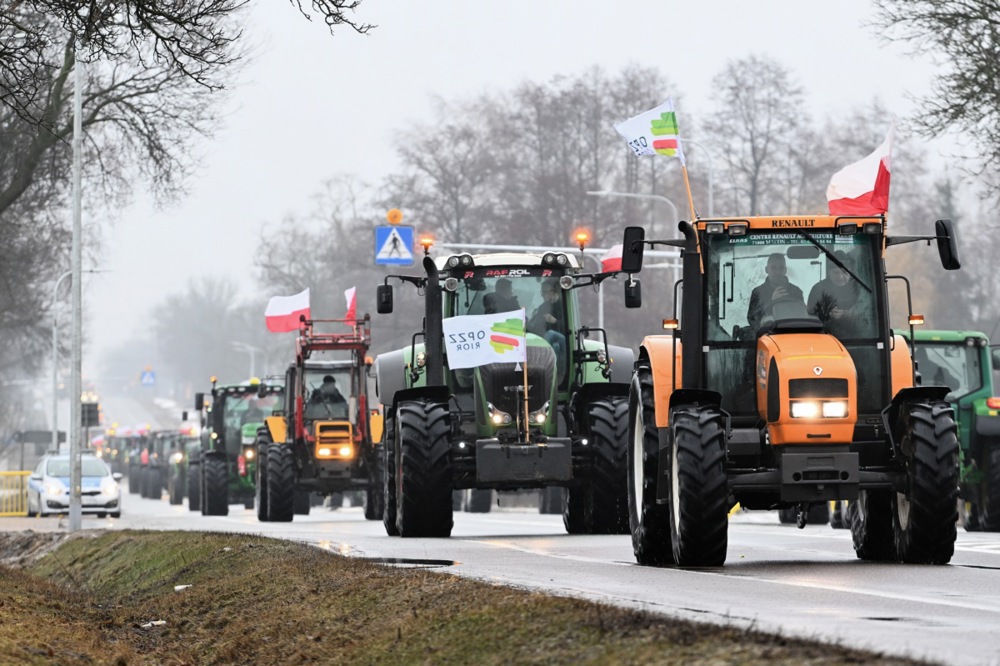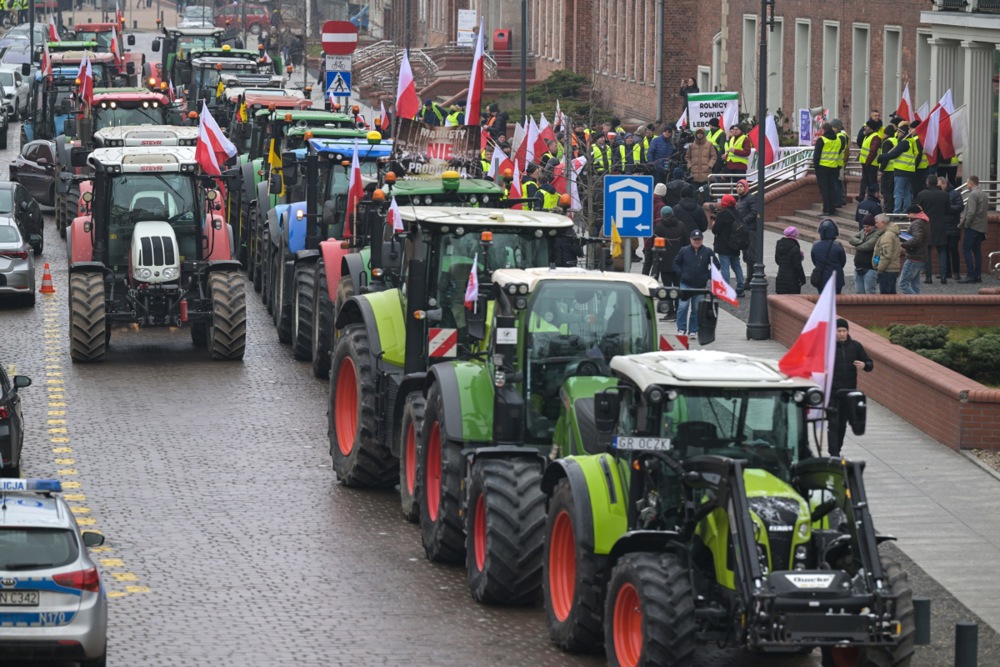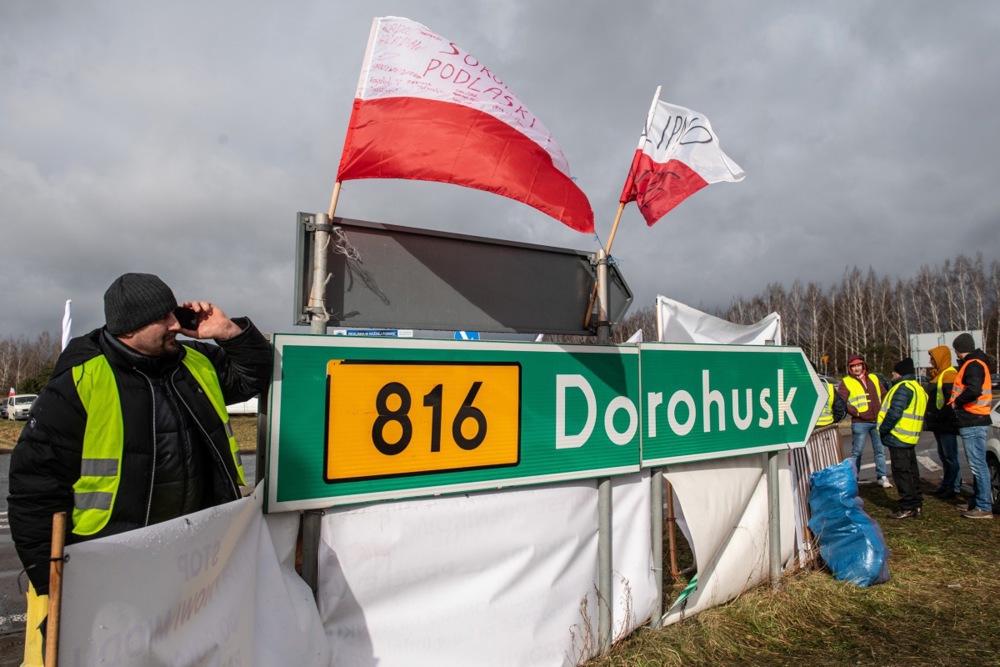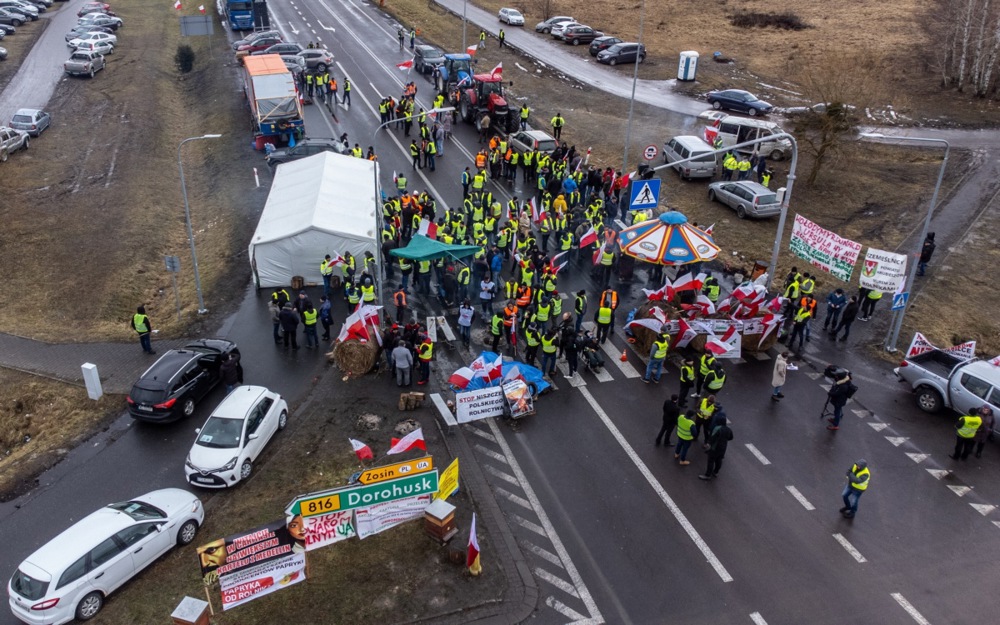Polish Prime Minister Donald Tusk met protesting farmers in Warsaw and called for reform of both the European Union’s Green Deal and the EU free-trade agreement with Ukraine.
Tusk met farmers’ representatives on February 29, following a series of demonstrations and blockades by agricultural workers protesting against Ukrainian imports and EU climate policies.
After lengthy discussion, Tusk said he would lobby the European Commission on the farmers’ behalf for reform of the Green Deal and push for an embargo on agricultural products imported from Russia, Belarus and elsewhere.
He said his Government and Polish farmers shared a common objective of protecting the country’s and wider Europe’s markets from what he said was “unfair and crushing” consequences of the “ill-advised” decision to liberalise trade with Ukraine after Russia’s invasion in February 2022.
“Ukrainian grain cannot flow duty-free, like a wide river, into Poland,” he said, adding that, while Ukraine must be helped in its defence against Russian aggression, “the victims of this war must not be Polish farmers”.
“The interests of Ukrainian agri-holdings cannot override the interests of Europe and our farmers – and this has nothing to do with Ukraine’s security,” added Tusk.
Such remarks seemed to put into question Poland’s relations with Kyiv, which the Polish Government has recently tried to improve.
Asked by reporters about what he would be pushing for in terms of reforming the Green Deal, Tusk said it would involve “practically all” provisions of the deal relating to agriculture, which “must be suspended or withdrawn”.
He agreed with farmers’ leaders that direct payments for agriculture should not be tied to meeting climate objectives. That, he said, was especially pertinent given the fact that Ukrainian producers exporting into EU markets did not have to honour those same EU standards.
The Prime Minister said Polish demands for changes to EU policies would include the threat of Poland’s agriculture sector refusing to implement climate policies in their current form, unless acceptable reforms were forthcoming.
He said Poland will also seek an embargo on products from Russia and Belarus.
“It is inconceivable that we are saying that Ukraine should be subjected to duties, while Russian and Belarusian products enter Europe without restrictions,” Tusk argued.
Other ideas for tackling the Ukrainian grain issue discussed at the meeting with the farmers included a guaranteed minimum price for Ukrainian grain entering the EU. That came alongside suggestions of the EU financing the purchase and transport of grain from European markets as “humanitarian aid” for countries in need.
Tusk also argued that the EU must “tackle the surplus on the grain market”, which in Poland was of the order of 9 million tonnes, he said.
He added that he would be pressing the EU for changes to the free-trade agreement with Ukraine to avoid such “problems” in the future.
Tusk also commented about the feasibility or otherwise of closing the border with Ukraine to all trade.
“This is not a dream scenario” and, he said, it would “have mutual consequences”.
He added: “We must keep this possibility in mind – if our demands do not resonate in Brussels and with Ukraine,” insisting such a solution would not apply to humanitarian and military aid transport.
Sławomir Izdebski, a Polish farmers’ leader, told commercial broadcaster TVN that the summit had seen “good discussions” take place but added that farmers would continue their protests until “concrete measures” were taken by the Polish Government at both domestic and EU levels.
The next major planned Polish farmers’ protest, to be held in the capital Warsaw, is scheduled for March 6, union officials confirmed.





